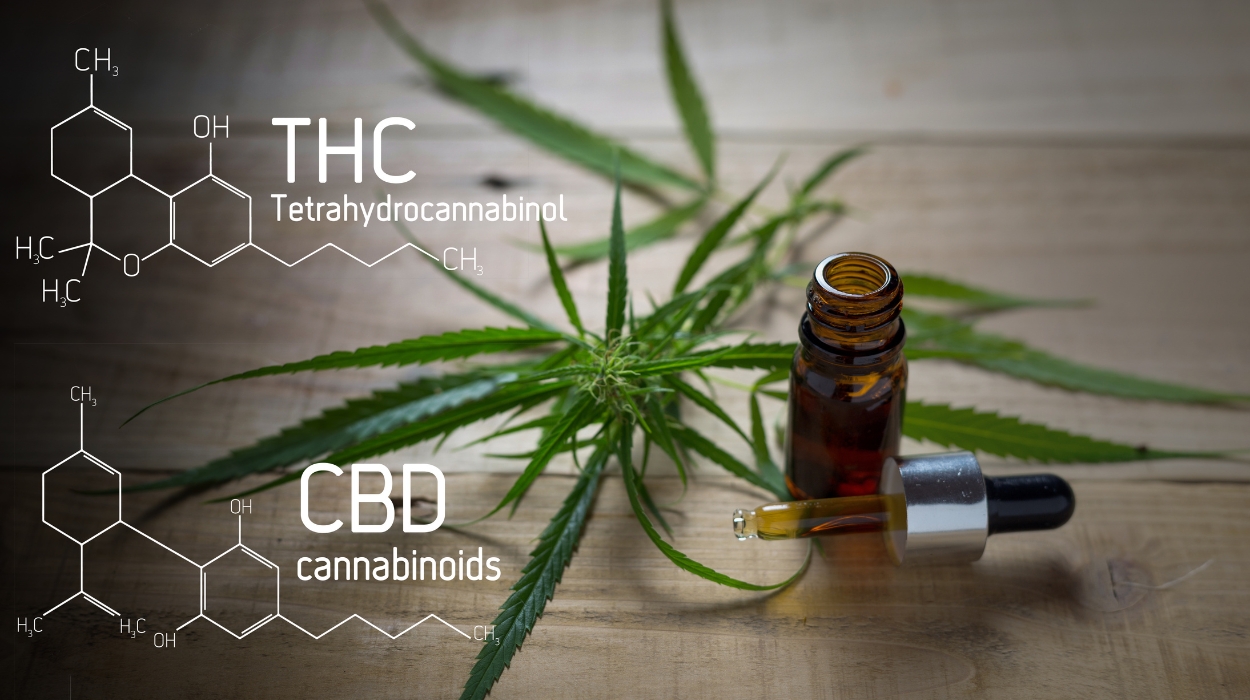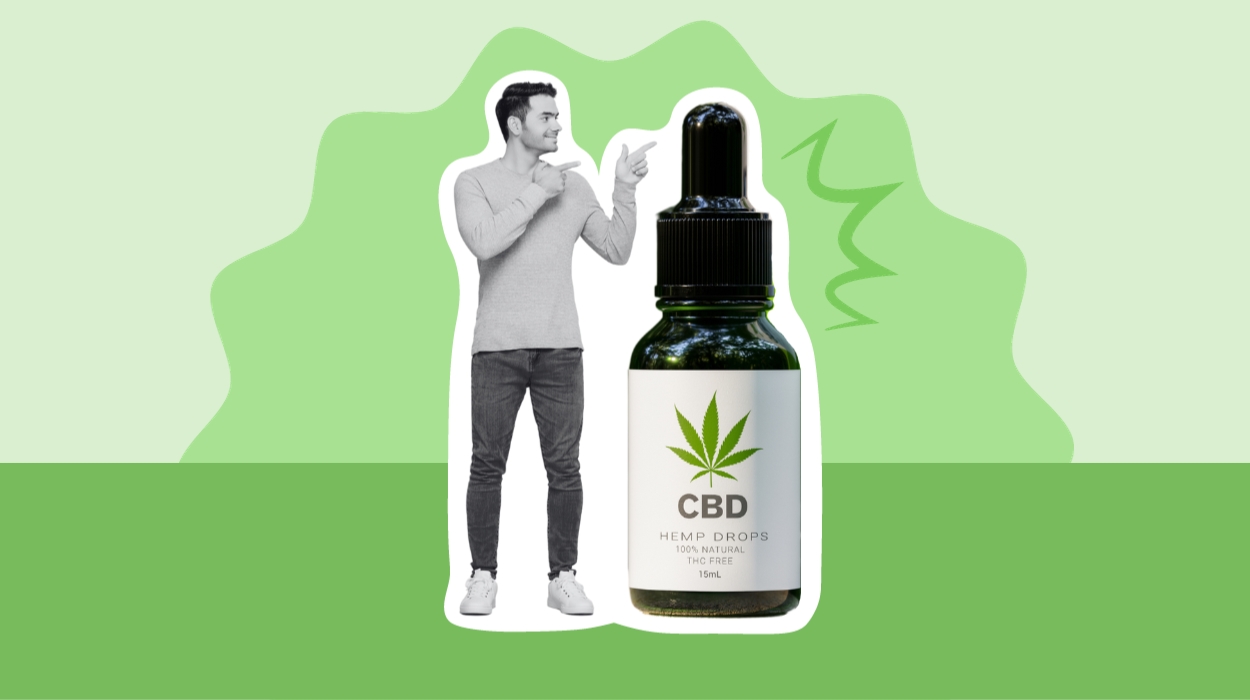CBD has recently received a great deal of buzz about all the potential physical and psychological benefits it can offer us. You might have questions regarding the veracity of these claims and what you can really expect if you try CBD.
The benefits of CBD are firmly rooted in science and more and more research is being done to verify all the claims. To see why CBD can help us, we first need to take a look at our own bodies.
What Does CBD Oil Feel Like?
Here are some feelings you can get when using CBD:
- Relaxing
- Balancing
- Discomfort-free
- Elevating
- More “in-the-zone”
How Does CBD Oil Make You Feel?
Relaxing
You might notice a calmness come over you when you use CBD. Muscle tension might decrease, and your mind might feel quieter. The effects are subtle, however, and not everyone will notice any significant changes right away.
Balancing
Maybe you think you don’t feel different after using CBD. Then you notice your thoughts have stopped racing or your normal low-key constant buzz of anxiety is gone. A quiet sense of balance has taken up residence in your previously busy mind.
Discomfort-Free
CBD is an effective anti-inflammatory and pain controller. Take some after you go to the gym and notice how fast your muscle soreness dissipates.
Many people with chronic pain[1] find new levels of relief when they add CBD to their regimen.
Elevating
Decreased anxiety and stress, better sleep, and a more relaxed body helps to elevate the mood of CBD users. You won’t be giggly and high like you might be with THC, but it’s likely you’ll feel better than you’re used to.
More “In-The-Zone”
You might feel more mentally focused and able to concentrate while taking CBD. You won’t be wasting as much mental energy on stress and anxiety as you usually do, and you’ll probably be getting better sleep than you’ve had in a while.
These things, as well as the neuroprotective effects of CBD, can help you feel more mentally clear and alert.
The Human Endocannabinoid System
Did you know that the human body possesses a complex biological system called the endocannabinoid system (ECM)? The ECM is made up of cellular receptors and chemical signals spread throughout the body that help regulate messages to the nervous system.
Endocannabinoids assist the body with learning, mental and emotional processing, sleep, appetite, immunity, homeostasis (keeping body temperature and other physiological processes balanced,) pain control, and inflammatory responses.
Endocannabinoid receptors in the brain are called CB1 and CB2 receptors, and they are present in vast numbers. In fact, CB1[2] receptors are one of the most abundant receptors in the human brain.
Cannabinoids like CBD that are present in marijuana plants are nearly bioidentical to our endogenous endocannabinoids and easily engage with our CB1 and CB2 receptors. This is why CBD oil potentially offers us so many beneficial outcomes.
CBD Vs. THC

There are over 100 different cannabinoids found in marijuana. THC and CBD are two of the best known.
THC is the component of the marijuana plant that contains psychoactive properties that cause the “high” marijuana is famous for. CBD does not contain those psychoactive properties.
Both THC and CBD can engage with the ECS and regulate the many physiological processes associated with it, but CBD will do so without getting you high.
What To Expect When You Start Taking CBD?
Expect To Feel A Sense Of Peace From CBD Oil Items
Research[3] has proven that CBD is able to engage with receptors known to regulate fear and anxiety. It is being investigated as a potential treatment for numerous anxiety disorders.
CBD decreases feelings of stress and can increase your sense of calm, even if you do not suffer from an anxiety disorder.
Relaxation Or Calmness Is Possible
In addition to the mental relaxation that CBD can provide, CBD[4] is known to be an effective muscle relaxant. It has even been indicated in the treatment of muscle spasticity in Multiple Sclerosis patients.
Based on these findings, it’s not unrealistic to expect that CBD can help you feel more physically and mentally relaxed.
Pain Relief And Anti-Inflammatory Effects
CBD has been proven[5] to minimize inflammation and oxidative stress in the body. In addition to this general reduction in inflammation, CBD[6] products also relieve pain receptors and indirectly stimulate opioid receptors.
All of these effects can minimize the experience of physical pain and even speed up the healing process when you have an injury[7].
Better Sleep
CBD impacts the sleep-wake cycle and has been shown to improve the quality of sleep. With short term use, CBD[8] has been shown to help people fall asleep faster and sleep longer.
With long-term use, there may be some tolerance that develops and sleep benefits may wane. More research is needed to determine if there are long-term health benefits to sleep with regular CBD use.
More Energy And Focus
Although more research is needed into this area, preliminary research[9] suggests that CBD helps people better focus and process certain kinds of visual information.
CBD also appears to increase energy[10] in some people. Again, more research is needed to understand the exact reason this happens. It might be as simple as having improved sleep disorders and less anxiety due to CBD usage.
Improved Neurological Symptoms
CBD decreases inflammation in the brain and improves cognitive[11] function. It also offers protection[12] against neurodegenerative disease processes like Alzheimer’s disease and Parkinson’s, to name a few.
How Long Does It Take To Feel The Effects Of CBD?
CBD Oils
Broad Spectrum CBD oil delivered sublingually (under the tongue) kicks in within 15-minutes, and about 20% of the CBD in the product is available to your body using this route.
Smoking Hemp Rich In CBD
Smoking CBD gives you full effects within 10 minutes. You will absorb up to 56% of the CBD when using this route, but this is a risky way to take your CBD. Lung damage can occur when you smoke or vape CBD products.
CBD Edibles And CBD Softgels
CBD edibles and softgels can take an hour or two to reach their full efficacy. When ingested, you receive 20-30% of the CBD as the rest is broken down during digestion.
Smoking CBD gives you full effects within 10 minutes. You will absorb up to 56% of the CBD when using this route, but this is a risky way to take your CBD. Lung damage can occur when you smoke or vape CBD products.
CBD Topicals
Topicals are an excellent choice if you are treating localized pain. It is absorbed well when applied generously to a specific area. It will take up to 2 hours to reach full efficacy.
How Does CBD Make You Feel If You Take High Doses?
Dry Mouth, Diarrhea, Or Reduced Appetite
High doses of CBD are well known to cause gastrointestinal problems, like diarrhea and upset stomach. Because CBD impacts appetite, taking too much can also cause a decrease in appetite.
CBD can also alter the composition of saliva by inhibiting a specific enzyme and, when taken in large doses, can cause dry mouth.
Drowsiness And Fatigue
Some sensitive people experience drowsiness when they take CBD, but usually this side effect doesn’t happen unless the dose is high. Even then, not everyone will experience fatigue.
Medication Interactions
CBD can increase side effects of some medications such as antidepressants, antipsychotics, antihistamines, opioids, benzodiazepines, and alcohol.
It can also potentially interact with 57 medications. You must be closely monitored by a physician if you are taking any of those medications as well as CBD products.
Listed below are a few medicines that can have severe interactions with CBD.
Potentially Serious Interactions
- Warfarin
- Amiodarone
- Levothyroxine
- Seizure medications Clobazam, Lamotrigine, and Valproate
Does CBD Have Side Effects?
CBD usually does not have side effects unless taken in high doses, but dry mouth, upset stomach and diarrhea, sleepiness, and reduced appetite can happen at any dose.
Is It Legal To Use CBD Products?
CBD product is legal as long as they contain less than 0.3% of THC.
How Much CBD Should You Take To Feel A Difference?
Start with a low dose and work your way up until you get the results you’re after. Keep your weight in mind as well as the route you are using to take your CBD.
Many factors will affect the response you get from CBD, and it’s always a good idea to work your way up slowly in order to avoid any potential side effects.
Conclusion
You can generally expect to feel improvements in mood, sleep, and physical comfort when you take CBD, and you will receive many more benefits that you don’t necessarily feel.
Decreased anxiety and stress, relaxed muscles, good sleep, and clear thinking are all wonderful effects you can experience in the short term. In the long term, you might find yourself protected from pain, inflammatory conditions, and degenerative neurological illnesses.
Frequently Asked Questions
No. CBD does not contain the psychoactive components of the marijuana plant.
CBD is legal as long as it contains less than 0.3% of THC.
It is unlikely, but it can. Side effects are mostly dose-dependent and mild. Stomach ache and diarrhea, dry mouth, fatigue, and decreased appetite have been reported, especially at high doses.
 Expert's opinion
Expert's opinion
